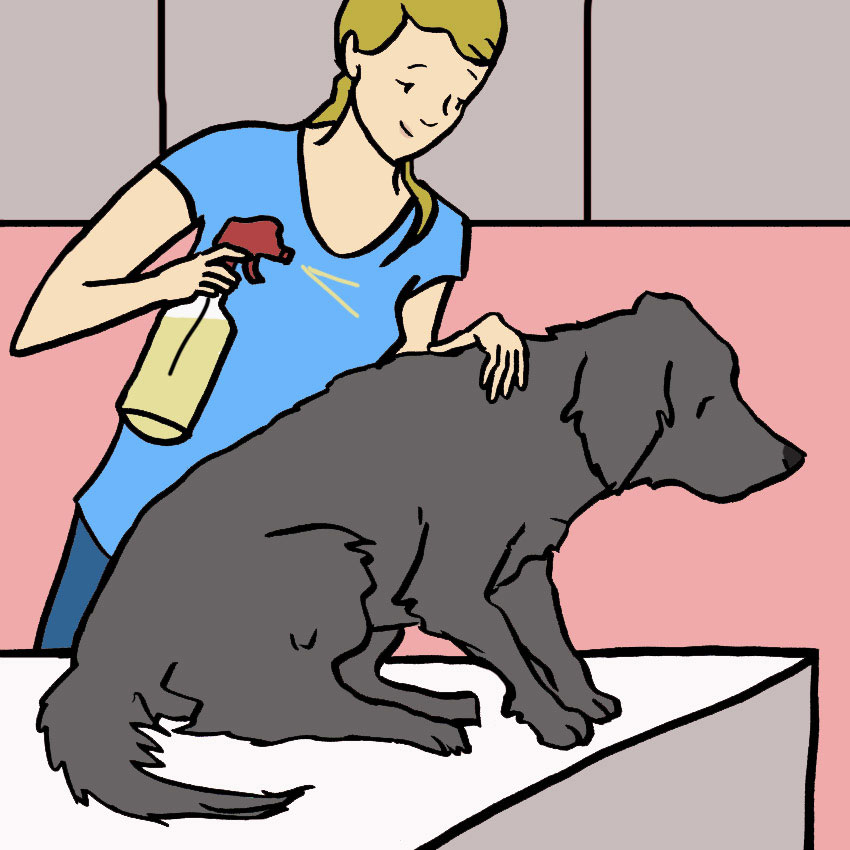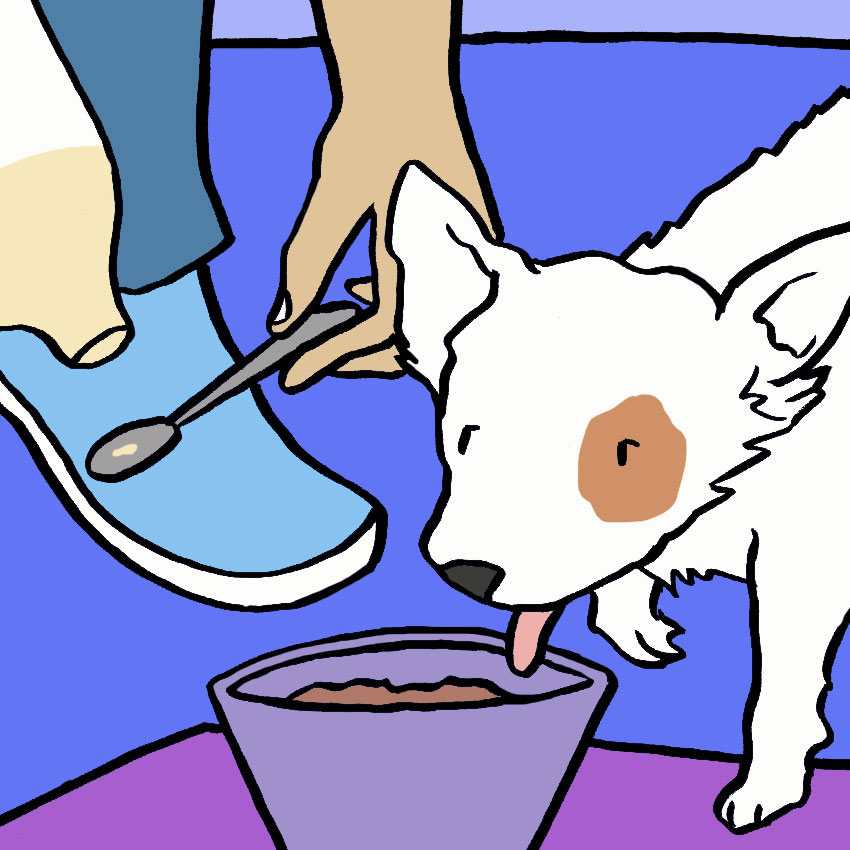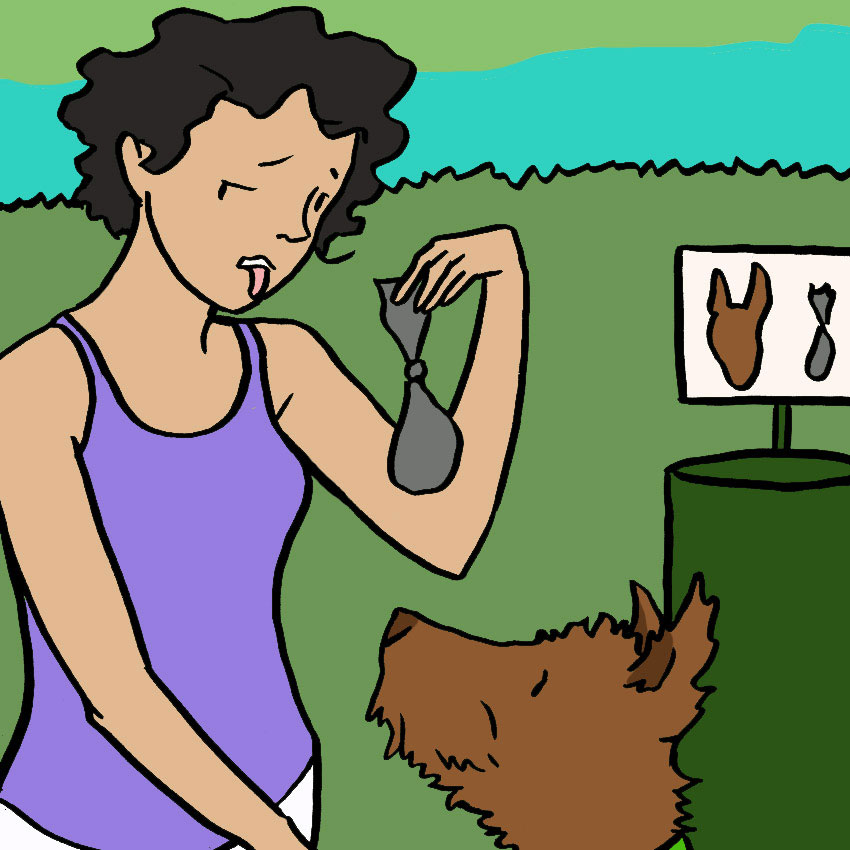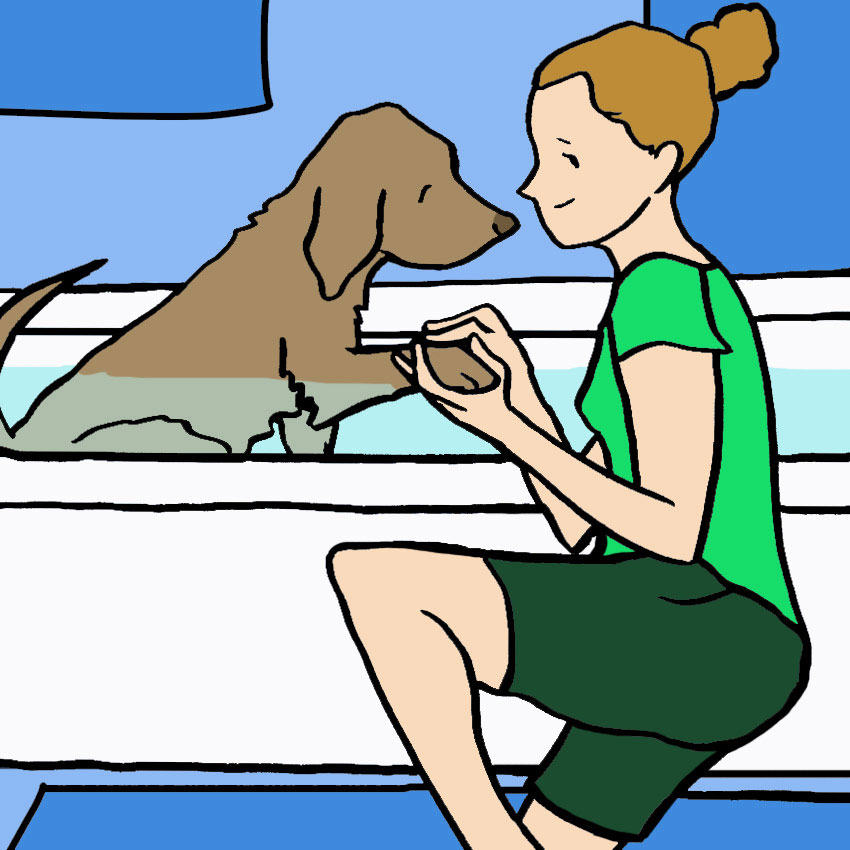By now just about everyone knows that apple cider vinegar provides many health benefits for humans. We can use it for everything from weight loss, to acne, and even sunburn. But heads up, dog owners, because there are tons of apple cider vinegar uses for dogs too! It turns out ACV is quite the universal product, and we’re totally down with that.
So what makes apple cider vinegar so great? It seems to be nature’s miracle cure and we can use it for just about anything. It's mainly due to its antibacterial, anti-inflammatory, and antiseptic properties. Be careful, though, because apple cider vinegar is very strong and never meant to be used alone, so always dilute it before applying or drinking it.
If you've ever thought about using ACV for dogs, you’re definitely barking up the right tree. Here, we’ll outline the different ways you can use apple cider vinegar for dogs and some safety tips to make sure you’re doing the best thing for your furry friend.
Benefit #1: Itchy Skin Treatment

Does it seem like your pooch is itching and scratching every time you turn around? Tons of things can make dogs itchy, and apple cider vinegar can help treat that! In fact, it has been used for centuries to aid skin maladies, according to psoriasis.org.
There are two methods to soothe your dog’s itchy skin with apple cider vinegar. You can draw an apple cider vinegar bath for a dog, or you can create an ACV spray to use while you brush your pet:
- Mix equal parts apple cider vinegar and water.
- Pour into a spray bottle.
- Apply liberally to your dog’s fur and follow with a thorough brushing.
- Be sure to avoid open wounds and your pup’s nose and eyes.
Benefit #2: Ear Infection Relief

The antiseptic properties in apple cider vinegar make it an excellent, at-home prevention for ear infections. Dogs, especially those with large, floppy ears, are prone to ear infections. You can use apple cider vinegar to treat dog ear infections by soaking a cotton ball and applying it to the inside of the ear regularly.
According to Earth Clinic, you can also “fill a spray bottle, squirt bottle, or bulb syringe with your diluted apple cider vinegar solution [then] spray or irrigate (flush) out the ear.” This should lessen the frequency and severity of ear infections.
Benefit #3: UTI Relief

If your house-trained dog begins to have accidents or drip urine in the house, she may be suffering from a UTI. Some dog breeds are more prone to UTIs than others, but the symptoms are always the same: dribbling urine, house-training regression, blood in the urine, and seemingly painful urination. Luckily, you can use apple cider vinegar for dog UTIs. Earth Clinic recommends the following doses, which are based on your dog’s weight:
- 1 tsp. for small dogs
- 1 tbsp. for medium dogs
- 2 tbsps. for large dogs
If you’re lucky enough to have a dog that will drink ACV in her water, then it’ll be super simple to try this solution. If not, you can simply add it to her food or mix it with yogurt or peanut butter.
Benefit #4: Digestion

Apple cider vinegar can provide lifelong benefits when it comes to your pooch’s digestion, just like it can for us. According to the website Natural Dog Health Remedies, apple cider vinegar “helps prevent bacterial and viral growth in the digestive tract. In addition, it does not upset the balance of the friendly bacteria inside the GI tract. As a result, apple cider vinegar boosts the immune system.”
Benefit #5: Get Rid Of Diarrhea

Despite your best attempts to keep her healthy, your dog is bound to get a bad case of diarrhea at some point. Whether it’s a sneaky foray into the trash or getting ahold of a particular food that causes digestive upset in dogs, these things can happen, and you’ll likely be searching for a quick cure. Curing diarrhea and other digestive upsets is one of the greatest benefits of apple cider vinegar for dogs. According to Best Pet Tips, it balances acidity and reduces upset stomach. You don’t have to do anything special for this home remedy; simply follow the dosage instructions above and add it to your pup’s water or food.
Natural Dog Health Remedies says: “Apple cider vinegar also balances digestive enzymes in the body, so it is a good remedy for food poisoning and digestive upsets such as intestinal gas and constipation. It also reduces fecal odors.”
Benefit #6: Flea And Tick Treatment

Ahh, fleas and ticks: the banes of dog owners everywhere. The harsh chemicals that are sometimes used to keep fleas and ticks at bay are equally unpleasant. But did you know you can use apple cider vinegar for fleas on dogs?
According to Pet Insurance U, “Repelling fleas, ticks and other biting insects with ACV can be done several ways: with a sponge bath, a mist, or by mixing ACV into your dog’s food or water.” Incorporate all three of these methods by bathing your pooch regularly and spraying the ACV mist before he goes outside for a powerful, all-natural flea and tick repellant.
Benefit #7: Soothe Irritated Paws

Long walks on hot pavement, trips to the beach, or even long hikes in the backcountry can all leave your pup with some sensitive paws. Treat your dog to a puppy pedi by using apple cider vinegar for your dog’s itchy paws. K9 Instinct recommends you spray or dunk their paws in diluted ACV if you notice they are irritated.
Potential Risks

Now that you know how to use apple cider vinegar for dogs, you may be wondering if it also poses any dangers to dogs. Although apple cider vinegar touts some amazing benefits, remember that even the best things in life need to be enjoyed with moderation. Here are some considerations you should keep in mind if you plan to use apple cider vinegar for dogs:
1. Don’t feed undiluted apple cider vinegar to dogs. Aside from the bitter taste, it can burn their esophagus and eventually their stomach too. Undiluted ACV is also harmful to tooth enamel in both dogs and humans. Always dilute apple cider vinegar for dogs with their water (and always offer fresh water too!) or mix it in with their food. PetMD also recommends that pets with kidney diseases steer clear of the stuff.
- Don’t apply apple cider vinegar directly to serious or severe burns, cuts, or other injuries, as this would be incredibly painful for your dog. Apple cider vinegar can be used for abrasions or hot spots, but be sure to dilute it and follow your vet’s advice for how to properly use apple cider vinegar for your dog’s skin if the skin is broken.
Are you planning on using apple cider vinegar for your dog? Please SHARE this article with your dog-loving friends!




